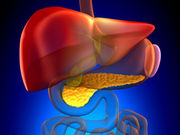Novel discovery of molecular pathways may reveal map to regenerate insulin-producing cells
WEDNESDAY, Oct. 4, 2017 (HealthDay News) — An analysis of whole-exome and RNA sequencing data reveals mutations, copy number variants, and/or dysregulation of epigenetic modifying genes in insulinomas, which may be candidates for inducing beta cell regeneration, according to a study published online Oct. 3 in Nature Communications.
Huan Wang, from the Icahn Institute for Genomics and Multiscale Biology in New York City, and colleagues surveyed 38 insulinomas to explore therapeutic pathways for beta cell regeneration. The genomic and molecular landscapes of insulinomas were characterized relative to normal beta cells using an integrative analysis of whole-exome and RNA sequencing data.
The researchers found that most insulinomas exhibit mutations, copy number variants, and/or dysregulation of epigenetic modifying genes at the pathway level; these were seen most prominently in the polycomb and trithorax families. These processes were coupled with co-expression network modules that correlate with cell proliferation, indicating candidates for inducing regeneration of beta cells.
“Validation of key computational predictions supports the concept that understanding the molecular complexity of insulinoma may be a valuable approach to diabetes drug discovery,” the authors write.
Copyright © 2017 HealthDay. All rights reserved.








